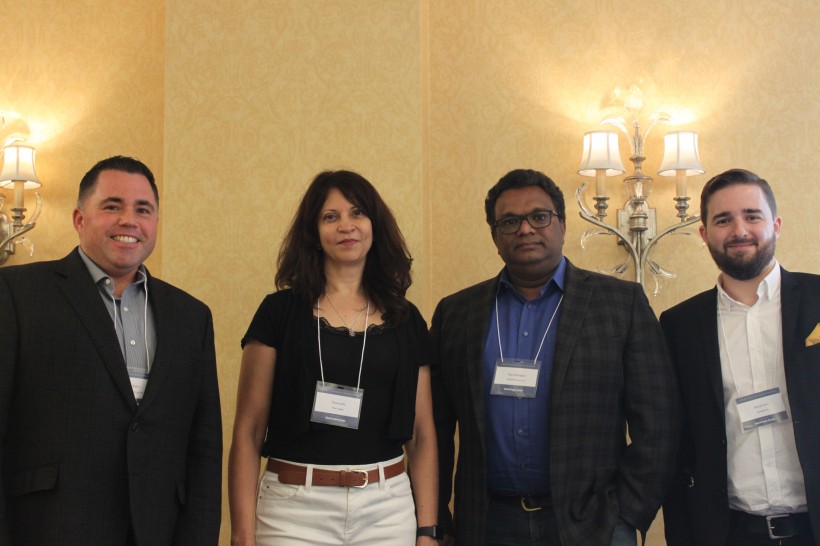Blockchain technology has a reputation for being difficult to understand. It’s a relatively new technology that takes on different meanings depending on who you ask. Recently, the folks at the David Aplin Group in Halifax, organized a panel discussion to help the region’s business and innovation community better understand this new industry.
The recent Breakthroughs in Blockchain event in Halifax, welcomed dozens of business owners and industry experts to consider the implications of this emerging technology.
The four-person panel included: Jonathan Baha’i, Founder of exeBlock and Peerplays Blockchain Standards Association; Dawn Jutla, CEO at Peer Ledger; Daniel Faria,CEO of Nodablock, an enterprise blockchain provider; and Vijai Karthigesu, Founder and CEO of UBIQUE Networks.
“We knew that there was a real appetite to hear about the actual applications of blockchain and how it can benefit so many different businesses and sectors. So, we’re thrilled to have the top leaders in the industry share first-hand about the work they’re doing,” Joanna Hamilton, the Senior Consultant at David Aplin Group, said in an interview.
Blockchain is a decentralized, distributed and public digital ledger that is used to record transactions across many computers so that the record cannot be altered retroactively without the consensus of the network. It is the technology that underpins transactions that use BitCoin, a universal, digital cryptocurrency.
A blockchain database is appealing to many institutions in both the public and private sectors because it is managed autonomously using a peer-to-peer network. All interactions are time-stamped, and it’s almost impossible to delete data.
“For the first time ever, since the internet has been introduced, we’re actually able to have immutability in transactions which take place in a decentralized fashion,” said Baha’i during the discussion.
“It eliminates the middleman, so to speak, and gives you the ability to transact with one another in a true peer-to-peer fashion, and transact that value from one point to another, digitally.”
Currently, blockchain is being used in several ways by Atlantic Canadian enterprises, from ensuring ethical supply-chain management in the precious minerals industry, to managing the online transactions of 50/50 draws. The panel showed the audience that there are multiple avenues for adopting blockchain.
Blockchain in Atlantic Canada, in terms of a full-scale mass adoption, is still in its infancy. The panel argued that the region’s governments need to be more onboard in learning about how to adopt these new systems.
“I think that we can use blockchain and use our applications and thought leadership that’s going into it to show that we are a blockchain province,” said Jutla.
There were some disagreements among the panelists regarding how fast Atlantic Canada will fully adopt the technology. But all four agreed that the impact of blockchain, will be huge.
“I think every industry is going to be a blockchain user,” said Karthigesu.










